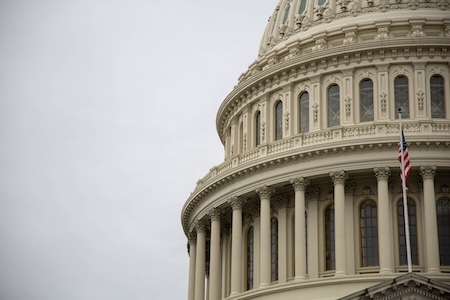
The Importance of Relief Funding Laws
In a world with many unexpected problems, we all need help during tough times. Relief funding laws are like a financial safety net for people, families, and communities dealing with money troubles, natural disasters, and health problems. In this blog, we'll talk about why these laws are so important.
The Essence of Relief Funding Laws
Relief funding legislation, often introduced by governments, is a set of policies and legal frameworks aimed at providing financial support and assistance during times of crisis. These crises can take various forms, including economic downturns, natural disasters like hurricanes or wildfires, public health emergencies such as pandemics, and more. The primary objective is to alleviate the adverse effects of these crises and help individuals and communities get back on their feet.
Key Components of Relief Funding Laws
Direct Financial Assistance: Relief funding legislation typically includes provisions for direct financial aid to affected individuals and families. This assistance may take the form of stimulus checks, grants, or unemployment benefits, ensuring that basic needs are met even in the face of adversity.
Support for Small Businesses: Small businesses often bear the brunt of economic challenges. Relief Funding Laws offers support in the form of grants, loans, or tax incentives, helping these businesses stay afloat and preserving jobs.
Healthcare Initiatives: During health crises, such as the COVID-19 pandemic, relief funding legislation allocates resources for healthcare measures. This can include funding for testing, vaccine distribution, and medical equipment to protect public health.
Educational Aid: Recognizing the importance of education, Relief Funding Laws provides funding for educational institutions and programs, supporting remote learning, technology access, and grants for students to ensure continuity of education during crises.
Food Security: The Laws addresses food insecurity by offering support to programs like the Supplemental Nutrition Assistance Program (SNAP) and food banks. This ensures that individuals and families have access to nutritious meals.
Housing Protections: Housing assistance provisions prevent evictions and foreclosures, ensuring that people have secure housing during economic and natural disasters.
The Importance of Relief Funding Laws
Relief Funding Laws is not just about dollars and cents; it's about creating a safety net that helps individuals and communities weather the storm. Here's why it is so essential:
Economic Resilience: These laws inject funds into the economy, which can help prevent a full-scale economic collapse during crises. They play a crucial role in maintaining economic stability.
Support for Vulnerable Populations: Relief Funding Laws prioritizes support for those most vulnerable to economic shocks. It provides assistance to low-income individuals, the unemployed, and businesses at risk of closure.
Public Health Protection: In public health emergencies, this legislation ensures that healthcare resources remain accessible, contributing to efforts to control and mitigate the crisis.
Social Stability: By preventing homelessness, hunger, and financial insecurity, Relief Funding Laws contributes to maintaining social stability, reducing societal unrest during challenging times.
The Ongoing Challenge
The world is no stranger to crises, and relief funding laws will continue to play a pivotal role in addressing these challenges. However, the ability to provide effective and timely support hinges on the ability of governments to adapt and improve these laws continually.
In conclusion, relief funding laws embodies the spirit of compassion and unity. It provides a critical safety net during times of crisis, offering individuals, families, and businesses hope and stability when they need it most. As we move forward into an uncertain future, the importance of relief funding legislation remains as strong as ever, serving as a beacon of hope during challenging times.